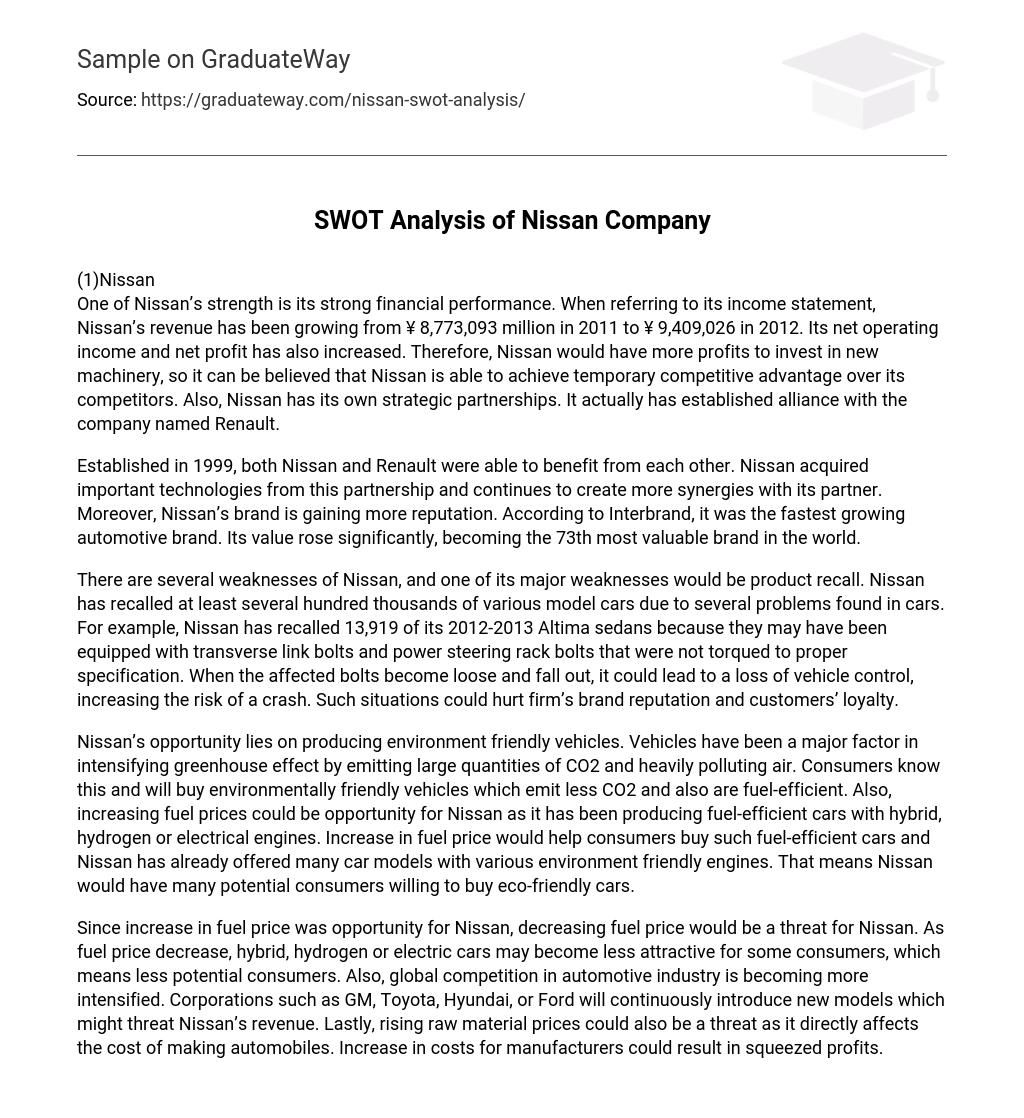One of Nissan’s strength is its strong financial performance. When referring to its income statement, Nissan’s revenue has been growing from ¥ 8,773,093 million in 2011 to ¥ 9,409,026 in 2012. Its net operating income and net profit has also increased. Therefore, Nissan would have more profits to invest in new machinery, so it can be believed that Nissan is able to achieve temporary competitive advantage over its competitors. Also, Nissan has its own strategic partnerships. It actually has established alliance with the company named Renault.
Established in 1999, both Nissan and Renault were able to benefit from each other. Nissan acquired important technologies from this partnership and continues to create more synergies with its partner. Moreover, Nissan’s brand is gaining more reputation. According to Interbrand, it was the fastest growing automotive brand. Its value rose significantly, becoming the 73th most valuable brand in the world.
There are several weaknesses of Nissan, and one of its major weaknesses would be product recall. Nissan has recalled at least several hundred thousands of various model cars due to several problems found in cars. For example, Nissan has recalled 13,919 of its 2012-2013 Altima sedans because they may have been equipped with transverse link bolts and power steering rack bolts that were not torqued to proper specification. When the affected bolts become loose and fall out, it could lead to a loss of vehicle control, increasing the risk of a crash. Such situations could hurt firm’s brand reputation and customers’ loyalty.
Nissan’s opportunity lies on producing environment friendly vehicles. Vehicles have been a major factor in intensifying greenhouse effect by emitting large quantities of CO2 and heavily polluting air. Consumers know this and will buy environmentally friendly vehicles which emit less CO2 and also are fuel-efficient. Also, increasing fuel prices could be opportunity for Nissan as it has been producing fuel-efficient cars with hybrid, hydrogen or electrical engines. Increase in fuel price would help consumers buy such fuel-efficient cars and Nissan has already offered many car models with various environment friendly engines. That means Nissan would have many potential consumers willing to buy eco-friendly cars.
Since increase in fuel price was opportunity for Nissan, decreasing fuel price would be a threat for Nissan. As fuel price decrease, hybrid, hydrogen or electric cars may become less attractive for some consumers, which means less potential consumers. Also, global competition in automotive industry is becoming more intensified. Corporations such as GM, Toyota, Hyundai, or Ford will continuously introduce new models which might threat Nissan’s revenue. Lastly, rising raw material prices could also be a threat as it directly affects the cost of making automobiles. Increase in costs for manufacturers could result in squeezed profits.





